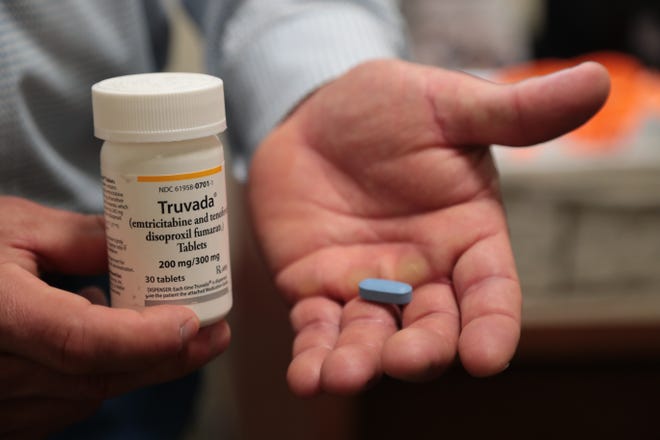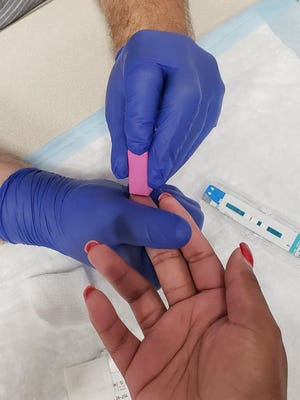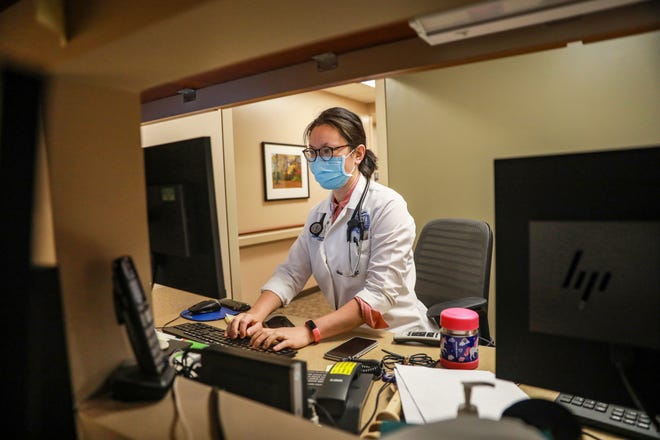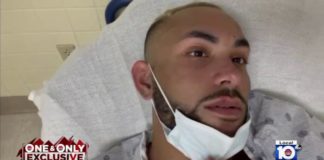As many as 1.2 million Americans are candidates for prescription drug treatments that prevent HIV, the virus that causes AIDS, yet only about one-quarter of them got the medication in 2020, according to the U.S. Centers for Disease Control and Prevention.
At Detroit-based Henry Ford Health, the gap is even bigger. Of the roughly 4,000 patients who are eligible for HIV pre-exposure prophylaxis (PrEP) within the health system, only 400, or 10%, are getting treatment.
The reasons, said Dr. Eunice Yu, a senior staff physician at Henry Ford Medical Group, are complex and rooted in decades of stigma, historically high prescription prices and a lack of medical providers educated in HIV prevention.

More:‘They Call Me Magic’ a reminder that Magic Johnson’s life wasn’t always, well, magical
More:Pride Month 2022: Your guide to celebrating LGBTQ pride across Michigan
“We know that there’s many more people who are eligible for PrEP than actually get PrEP,” Yu said. “There’s definitely some embarrassment about talking about sex and sexual practices with medical professionals. I think sometimes people don’t even realize that they are eligible for this treatment, and so they don’t see a reason to bring it up.
“And a lot of times, medical providers feel the same way and may or may not ask about sexual practices. They may not be aware that certain patients are eligible even when they come across eligible patients and it’s because, by medical standards, a relatively new tool in our toolbox for preventing the spread of HIV.”
People who test negative for HIV may be eligible for PrEP if they also:
- Have a sexual partner with HIV
- Have had sex in the last six months and have not consistently used a condom
- Have been diagnosed with a sexually transmitted disease in the last six months
- Use injection drugs
- Have an injection partner with HIV
- Share needles, syringes or other injection equipment with others
- Have been prescribed post-exposure prophylaxis and report continued high-risk behavior or have used multiple courses of post-exposure prophylaxis
What is HIV PrEP? A pill? Injection?
PrEP therapy is an antiviral prescription medication that blocks the replication of HIV in the body so the virus can’t establish a foothold, Yu said.
There are two prescription antiviral pills that are approved by the U.S. Food and Drug Administration for prevention of HIV: Truvada and Descovy. Each is taken daily and both are up to 99% effective at preventing HIV in people who are exposed through sex when taken as directed.

More:‘On the Line’: Motor City Pride, 50 years later
Among people who inject drugs, Truvada reduces the risk of contracting HIV by at least 74% when taken as prescribed.
Generic versions of those name-brand treatments also are available now.
For people who don’t want the hassle of trying to remember to take a daily pill, there also is the option of taking Apretude, a shot that is given once every other month. In clinical trials, it was shown to reduce the risk of contracting HIV among men and transgender women by 69% and by 90% in cisgender women.
What does PrEP cost?
Up until recently, HIV PrEP medications were out of reach for many people because they were so expensive, said Jacob Sierocki, project manager for the Henry Ford Medical Group and president of the Pride Employee Resource Group at Henry Ford Health.
“In the past, it was up to $2,000-plus a month to fill this medication,” he said, adding that it also wasn’t uncommon to hear about patients who had to battle with insurance companies over prior authorizations to get coverage for PrEP.
“They would either approve or deny it, and most of the time they probably denied it because they don’t want to cover the cost,” he said.
But that’s changed. The Affordable Care Act now requires PrEP to be fully covered under most private health insurance plans and state Medicaid expansion plans. That means many more people can get the treatment for free, without charges for clinic visits or tests related to the prescription.
For people without health insurance or those who are on Medicare or who have other plans that don’t cover PrEP, assistance is available through the U.S. Department of Health and Human Services. Its Ready, Set, PrEP program provides the treatment free for people who qualify.
Co-pay assistance programs also can help lower the costs of PrEP medications.
“Access still is limited even though (nearly) every health insurer will pay for this medication,” Sierocki said. “I think that’s mostly due to a lot of stigma around HIV in general. … It’s uncomfortable. As a patient, I don’t want to talk about that. I’m scared of it. … A doctor is looking at it the same way, right? Like this is new to me. I don’t know how to manage this.”

More:50 years ago, activists dared to hold first Pride gathering in Detroit
More:Motor City celebrates 50 years of Pride: What started as a protest is now a celebration
Are there disparities in who is getting PrEP treatment?
Yes. Of all the people who were prescribed HIV PrEP medications in 2020 in the U.S., 66% were white. Men were nearly three times more likely to get treatment than women, according to the CDC.
Only about 9% of the nearly 469,000 Black Americans who would have benefited from PrEP treatment got prescriptions for it in 2020.
In the Hispanic/Latino community, about 16% of people of the nearly 313,000 eligible for PrEP were prescribed the medication that year.
Sierocki said misconceptions persist about who is eligible for treatment.
“A lot of the times people think they are only for the LGBT community, and they’re not,” he said. “People have this perception that ‘Oh, PrEP is only for gay men, and it only prevents HIV for gay men?’ And it’s really not. It has expanded way beyond that.”

What can be done to change those disparities?
Among the things that can help make conversations with doctors less awkward is to ensure it’s easy to find and identify health care providers who are friendly to the LGBT+ community and to others who would be eligible for PrEP therapy.
At Henry Ford Health, physicians who actively prescribe the treatment can tag themselves on the health system’s website, so they’re simple to spot them on their profile pages.
“We also have a whole process in place where we require the physician to go through mandatory education and it has to be current within the last three years from a reputable source,” Sierocki said.
That means when patients are treated by a doctor with that LGBTQ+ designation, “they’re also going to a provider … versed in how to care for that population, and they’re … not going to be judged. There’s going to be no stigma about it.”
The health system also now allows patients to self-report sexual orientation and gender identity in their medical records through the online MyChart patient portal.
“It’s quick, easy, painless through MyChart,” Sierocki said. “It really allowed us to start looking at this to say, ‘OK, PrEP is something that affects the LGBT community in a large way, and how are we doing in that space? … We have all this data. Is there a disparity?’ “
Yu said when patients asked her about PrEP therapy, she realized she had work to do to learn more about how to take care of them.
“That pushed me to educate myself about PrEP and be the doctor that my patients were looking for,” Yu said. “It’s powerful for patients to know that they can … have a conversation with their providers and that’s something that they can that they can advocate for themselves.”
Contact Kristen Jordan Shamus: kshamus@freepress.com. Follow her on Twitter @kristenshamus.








